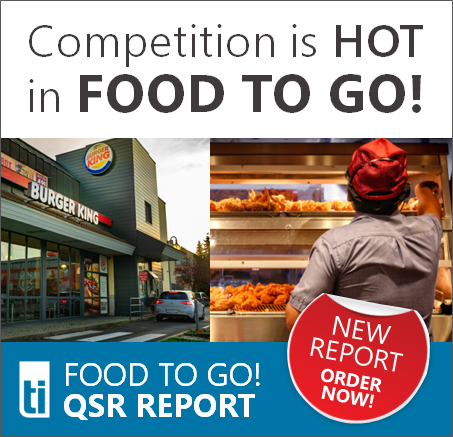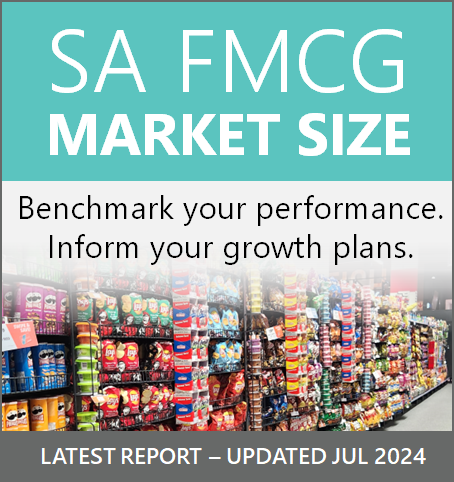
THIS ISSUE: 20 May - 26 May
Happy Africa Day for yesterday: a day to celebrate the achievements of this great continent we call home, but also look with clear eyes at our challenges. Accordingly, the AU’s theme for this year is ‘Nutrition’, an issue our industry is uniquely – almost exclusively – positioned to address. Many of our stories below pick up on this theme, from the coming price increases we’ll be covering in our webinar on Rising Prices in SA (see more here), to a company addressing food production in Kenya. Enjoy the read.
YOUR NUMBERS THIS WEEK
RETAILERS AND WHOLESALERS
-
Boxer A heavyweight contender
On the heels of last week’s Pick n Pay results and big restructuring announcement, the Group has detailed its ambitions for star performer and discount champion Boxer Superstores. Pick n Pay plans to open 200 new Boxer stores by 2026 as part of its plan to double the discount retail brand’s sales and gain 3% market share. To support this expansion, the business has opened a distribution centre in the Western Cape and has plans to open another in Gauteng. “We need to maintain our market leading like-for-like sales growth in our existing store base,” says youthful MD Marek Masojada, “And our commercial marketing and store operations teams are passionately obsessed with continuous delivery of exciting, innovative and disruptive promotions to drive sales.” Boxer has 380 stores currently trading, here and in eSwatini, and should have no trouble finding locations for its rollout in our current buyer’s market.
Comment: A smart purchase by Pick n Pay some 20 years ago now and showing solid returns on the investment as it becomes a foundation for Group growth.
-
-
Dis-Chem Healthy, wealthy, and wise
When we first started writing these weekly missives, Shoprite’s turnover was not terribly far north of R30bn – a total exceeded this week by Dis-Chem, South Africa’s newest listed retailer and a giant in the healthcare sector. Group turnover was up +15.7% to R30.4bn for the year through February, with operating profit up +21.6% to R1.5bn some change. The past year has seen some major growth for the business, the integration of the Baby City and Medicare acquisitions already showing promise to grow revenue. Dis-Chem considers private brands to present a R1bn growth opportunity for the business over the next three years. “Over the last financial year, we have navigated a challenging and complex operating environment, progressed strategic initiatives and completed acquisitions that will drive the group forward in years to come,” says CEO Ivan Saltzman. “COVID-19 waves became less severe with the consumer resuming their pre-pandemic routines and shopping habits, driving normalisation of baskets and seasonal patterns.”
Comment: Having resisted listing for some time, Dis-Chem has become a force to be reckoned with, and a business that has shown itself capable of bold strategic plays. For more on these latest results, click here.
-
-
In Brief We ask again: why is there only one Competition Commission?
The Competition Commission has given the nod to Shoprite’s acquisition of Massmart assets Cambridge Food, Rhino and Massfresh for R1.36bn. “The sale marks another step in the group’s portfolio optimisation process and will, amongst other benefits, free up management time to enable increased focus on leveraging Massmart’s core merchandise and market strengths,” said CEO Mitch Slape last year. Sticking with Shoprite, the Group is issuing 40 million Shoprite Checkers shares, with an estimated value of R8.9bn, in a non-vesting evergreen B-BBEE employee trust. This is for the benefit of its 126,000 South African staff, acknowledging the role they play in the growth and success of the business. Moving on, Clicks is embroiled in another legal how’s-your-father, this time with the Independent Community Pharmacy Association (ICPA), which has lodged a complaint with the Health Department about Clicks’ ownership of a drug making concern, Unicorn Pharmaceuticals, that holds 39 generic medicines under the regulatory regimes that apply to the sale of medicines. Last year the Cape High Court ruled that Clicks, as a business with an interest in community pharmacies, could not directly or indirectly own manufacturing pharmacies. Clicks appealed successfully; now to the Constitutional Court.
Comment: Clicks seems to boldly test the laws which govern this most regulated of sectors in its drive to offer South African affordable healthcare.
-
-
International Retailers We deliver
Those retailers puzzling their poor heads over what to do about their social media strategy need look no further than grocery start-up Weee!, which has one, and in the words of our 11-year-old daughter it is “fire”. To make online food shopping more fun and immersive it is showcasing videos and sharing stories behind the Asian and Hispanic ingredients that it sells. Having hired “Crazy Rich Asians” director Jon M. Chu as its chief creative officer earlier this year, the start-up gets punters to share what they order on social media or post videos of favourite foods and recipes through a TikTok-like feature in its app. Weee! (will the exclamation mark) sells more than 10,000 products, from kimchi and frozen shrimp dumplings to staples like bread and milk. Another grocery delivery service is not doing as well: the Gorillas app, which promises to deliver goods in as quickly as 10 minutes, is laying off half of its office staff, and tightening its focus on the five markets that account for 90% of its revenue: the UK, US, Germany, France, and the Netherlands. Moving on, Walmart quarterlies came in this week, and something of a bloodbath with profits way down, as their lower-end shoppers, hit by inflation, cut corners, leave items in their online baskets, simply walk out of stores, and trade down to private label.
Comment: The world has entered a deeply uncertain economic ambit the impacts of which are making themselves felt quite quickly.
MANUFACTURERS AND SERVICE PROVIDERS
-
Twiga Foods Eastern horizons
To Kenya, this Africa Day, where Nairobi-based Agri-tech startup, Twiga Foods, has launched a new agricultural venture as it expands its business model beyond supplying fresh produce and commodities through its mobile platform. Twiga has invested $10m in Twiga Fresh, which has already leased a 650-hectare farm in the Taita-Taveta country, where it will use modern farming techniques to increase its yields of onions, tomatoes, and watermelons. Good for the business, good for people: “The commodity-driven volatility in the world today is causing an unprecedented level of food inflation across the world. In Africa, we can least afford this disruption, and that is why we are excited about the imminent impact our technology-enabled supply chain will have in reducing the cost of food,” explains founder and CEO Peter Njonjo.
Comment: In Africa, perhaps as nowhere else, we understand the importance of nutrition and the fragility of food supply. Innovative businesses like Twiga are an African solution to our challenges.
-
-
In Brief Feeling the Heat
Knorr’s Plate of the Nation study has found that as prices rise and economic conditions become tougher, 67% of households in South Africa are reassessing their spending and sticking to a budget to survive the month, and as many as 66% of households are reducing their grocery spend by changing brands if the prices on their preferred brands increase. Tiger Brands, in the meantime, has warned that it will do its level best to reduce costs and minimise price rises but significant increases are inevitable. It will be cutting transport and short-term warehousing costs and reducing its manufacturing footprint by outsourcing value-added products to reduce overheads and labour costs. Tiger, as you know, is SA’s biggest food producer, and brings a wide range of staples to South Africans across the economic spectrum. Finally – a bit of light relief here – Coca-Cola’s iconic Sprite brand is undergoing a global refurb, with clear PET bottles replacing all the harder-to-recycle green ones, and a “Heat Happens” campaign to the effect that Sprite will help you overcome climate-induced perspiration and the “mental heat of unwanted interruptions” alike.
Comment: There’s a Trade Intelligence webinar on rising prices and what they mean for your team, going live on the 9th of June. Click here for the deets and then save the date.
TRADE ENVIRONMENT
-
Africa Day Food for thought
Yesterday was Africa Day, which marks the founding in 1963 of the Organization of African Unity, now the African Union. It’s a day for celebrating the achievements and potential of the continent, and the diversity and common humanity of its people. This year, the African Union’s theme for the day is ‘Nutrition’. As the continent continues its long recovery from the COVID-19 pandemic, with climate change starting to impact global food production and pressures on global supply chains and political instability in Europe, food security is an issue of increasing concern for African countries. Food insecurity is prevalent across our continent, affecting 35.8% of the Middle-African sub-region’s population in 2020, with sub-Saharan Africa following at 30%. This situation is not unrelated to our dependence on imports: between 2010 and 2019, North Africa was the region with the most food imports in Africa, accounting for a share of 31%. Southern Africa and West Africa followed with 25% and 24%, respectively.
Comment: For African problems, there are African solutions. Have a read of this thought leadership article for more.
Sign up to receive the latest SA and international FMCG news weekly.
Tatler Archive
Next Event
19 September: Corporate Retail Comparative Performance H2
“Ending racism is not just about changing attitudes; it is also about changing the material conditions that still today separate black and white South Africans.”




1.png)